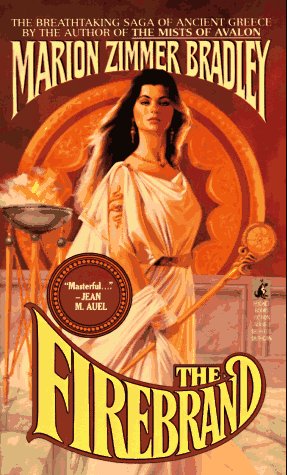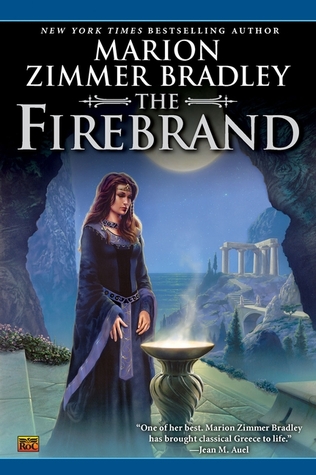Beyond being a well-written story, these themes struck me the most about this book. Nearly any historical fiction about medieval or ancient times will at least touch on the issue of women as commodities, and perhaps even the ubiquity of accepted rape, but it was Kassandra's commentary on these things that made them central themes in Firebrand. She seems to be the only one in Troy, even among other women, who questions or finds it outrageous that a woman can be carried off, raped, bought, sold, or claimed...and it's all completely acceptable as long as her violator marries her. She's written to see things things in the way a modern reader would. This makes her an accessible narrator, but at the same time it introduces an interesting interpretation of her curse.
In the myth, Kassandra is cursed by Apollo to see the future, but never to be believed. But her gift in Firebrand manifests itself very early and appears to be either inborn or a gift of the mother goddess. And she's not believed from the start, first because she is a child, and then because she is a woman. She doesn't just see glimpses of the future, she sees events as they happen and understands them. She airs her views to others but is ignored. Her opinions sound sensible and right to a modern reader, but are constantly dismissed by the other characters as madness or else an attempt to create drama and draw attention to herself. Perhaps her curse isn't to be a seer but to be a woman ahead of her time.
 I found many lines that echoed problems women face even now. One thread of the story is the pursuit of Kassandra by a priest of Apollo named Khryse. Upon his arrival in the temple, Khryse immediately begins to lust after her, despite the fact that she has take a vow of chastity. When she politely but firmly rebuffs him, he will not take no for an answer. When it escalates, he blames her for leading him on with her beauty, and even makes the excuse that the gods caused her to be beautiful and if he desires her, the gods clearly meant for him to have her.
I found many lines that echoed problems women face even now. One thread of the story is the pursuit of Kassandra by a priest of Apollo named Khryse. Upon his arrival in the temple, Khryse immediately begins to lust after her, despite the fact that she has take a vow of chastity. When she politely but firmly rebuffs him, he will not take no for an answer. When it escalates, he blames her for leading him on with her beauty, and even makes the excuse that the gods caused her to be beautiful and if he desires her, the gods clearly meant for him to have her.This and other situations in an ancient setting seemed designed to parallel issues that plague women in the present day, even though we may think we've left these attitudes far behind. Firebrand works as a simple feminist retelling of the Iliad, but there also seems to be a very deliberate message underlining it.


No comments:
Post a Comment